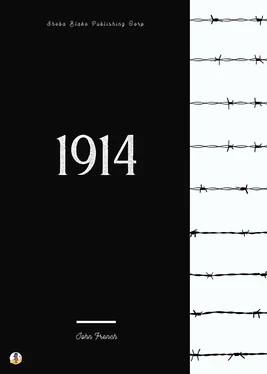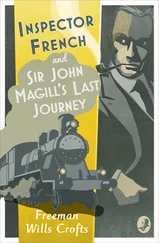1st Batt. K.O. (R. Lancaster) Regt. 2nd Batt. Lancashire Fusiliers. 2nd Batt. Royal Inniskilling Fusiliers. 2nd Batt. Essex Regt.
Divisional Cavalry : “B” Squadron 19th Hussars. 4th Cyclist Co.
Royal Engineers : 7th & 9th Field Cos. 4th Signal Co.
Royal Artillery : R.F.A. Batteries— XIV. Brigade—39, 68, 88. XXIX. Brigade—125, 126, 127. XXXII. Brigade—27, 134, 135. XXXVII. Brigade—31, 35, 55.
Heavy Battery, R.G.A.—31.
R.A.M.C.: 10th, 11th, & 12th Field Ambulances.
* * *
Lines of Communication and Army Troops :
1st Batt. Devonshire Regt. (transferred to 8th Brigade about middle of September, later to 14th Brigade).
1st Batt. Cameron Highlanders (replaced 2nd Munsters in 1st Brigade about September 6th).
[Note.—The 28th London (Artists’ Rifles), 14th London (London Scottish), 6th Welsh and 5th Border Regt. were all in France before the end of the First Battle of Ypres, as was also the Honourable Artillery Company. These battalions were all at first on Lines of Communication.]
* * *
6th Division : Major-Gen. J. L. KEIR.
16th Infantry Brigade : Brig.-Gen. C. INGOUVILLE-WILLIAMS.
1st Batt. East Kent Regt. (The Buffs). 1st Batt. Leicestershire Regt. 1st Batt. Shropshire L.I. 2nd Batt. York and Lancaster Regt.
17th Infantry Brigade : Brig.-Gen. W. R. B. DORAN.
1st Batt. Royal Fusiliers. 2nd Batt. Leinster Regt. 1st Batt. N. Staffs Regt. 3rd Batt. Rifle Brigade.
18th Infantry Brigade : Brig.-Gen. W. N. CONGREVE, V.C.
1st Batt. West Yorks Regt. 2nd Batt. Notts and Derby Regt. 1st Batt. East Yorks Regt. (the Sherwood Foresters). 2nd Batt. Durham. L.I.
Divisional Cavalry : “C” Squadron 19th Hussars. 6th Cyclist Co.
Royal Engineers : 12th & 38th Field Cos. 6th Signal Co.
Royal Artillery : R.F.A. Batteries— II. Brigade—21, 42, 53. XXIV. Brigade—110, 111, 112. XXXVIII. Brigade—24, 34, 72. XII. Brigade (Howitzer)—43, 86, 87.
Heavy Battery R.G.A.—24. 6th Divisional Train.
R.A.M.C.: 16th, 17th & 18th Field Ambulances.
* * *
7th Infantry Division : Major-Gen. T. CAPPER.
20th Infantry Brigade : Brig.-Gen. H. G. RUGGLES-BRISE.
1st Batt. Grenadier Guards. 2nd Batt. Border Regt. 2nd Batt. Scots Guards. 2nd Batt. Gordon Highlanders.
21st Infantry Brigade : Brig.-Gen. H. E. WATTS.
2nd Batt. Bedfordshire Regt. 2nd Batt. Royal Scots Fusiliers. 2nd Batt. Yorkshire Regt. 2nd Batt. Wiltshire Regt.
22nd Infantry Brigade : Brig.-Gen. S. T. B. LAWFORD.
2nd Batt. The Queen’s Royal West Surrey Regt. 2nd Batt. Royal Warwickshire Regt. 1st Batt. Royal Welsh Fusiliers. 1st Batt. S. Staffs Regt.
Divisional Cavalry : Northumberland Yeomanry (Hussars). 7th Cyclist Co.
Royal Engineers : 54th & 55th Field Cos. 7th Signal Co.
Royal Artillery : R.H.A. Batteries—“F” and “T.” R.F.A. Batteries— XXII. Brigade—104, 105, 106. XXV. Brigade—12, 35, 58. Heavy Batteries R.G.A.—111, 112.
R.A.M.C.: 21st, 22nd and 23rd Field Ambulances.
* * *
3rd Cavalry Division : Major-Gen. The Hon. JULIAN BYNG.
6th Cavalry Brigade : Brig.-Gen. E. MAKINS.
3rd Dragoon Guards (joined the Division early in November). North Somerset Yeomanry (attached to the Brigade before the end of First Battle of Ypres). 1st Dragoons (The Royals). 10th Hussars.
7th Cavalry Brigade : Brig.-Gen. C. T. McM. KAVANAGH.
1st Life Guards. 2nd Life Guards. Royal Horse Guards (the Blues).
Royal Horse Artillery : Batteries “C” and “K.”
Royal Engineers : 3rd Field Squadron.
R.A.M.C.: 6th, 7th and 8th Cavalry Field Ambulances.
Three
The Sailing of the Expeditionary Force

I left Charing Cross by special train at 2 p.m. on Friday, August 14th, and embarked at Dover in His Majesty’s cruiser “Sentinel.” Sir Maurice FitzGerald and a few other friends were at the station to see me off, and I was accompanied by Murray, Wilson, Robertson, Lambton, Wake, Huguet and Brinsley FitzGerald (my private secretary). The day was dark, dull and gloomy, and rather chilly for August. Dover had ceased to be the cheery seaside resort of peace days, and had assumed the appearance of a fortress expecting momentary attack. Very few people were about, and the place was prepared for immediate action. The fine harbour was crowded with destroyers, submarines, and a few cruisers; booms barred all the entrances and mines were laid down.
It was the first time since war had been declared that I witnessed the outward and visible signs of the great struggle for which we were girding our loins. Not the least evidence of this was the appearance of the officers and men of the “Sentinel.” All showed in their faces that strained, eager, watchful look which told of the severe and continual daily and nightly vigil. This was very marked, and much impressed me.
We sailed a little before 4 and landed at Boulogne about 5.30 in the evening. I was met by the Governor, the Commandant, and the port officials, and we had a very hearty reception. There were several rest camps at Boulogne, and I was able to visit them. Officers and men looked fit and well, and were full of enthusiasm and cheer.
Boulogne was only a secondary port of embarkation, but I can vividly recall the scene. Everyone knows the curious and interesting old town, with its picturesque citadel, situated on a lofty hill. On all sides were evidences of great activity and excitement. Soldiers and sailors, both British and French, were everywhere. All were being warmly welcomed and cheered by the townspeople.
The declining August sun lit up sinuous columns of infantry ascending the high ground to their rest camps on the plateau to the sound of military bands. From the heights above the town, the quays and wharves, where the landing of troops and stores was unceasingly going forward, looked like human beehives. Looking out to sea, one could distinguish approaching transports here and there between the ever wary and watchful scout, destroyer and submarine, which were jealously guarding the route.
Over all towered the monument to the greatest world-soldier—the warrior Emperor who, more than a hundred years before, had from that spot contemplated the invasion of England. Could he have now revisited “the glimpses of the moon,” would he not have rejoiced at this friendly invasion of France by England’s “good yeomen,” who were now offering their lives to save France from possible destruction as a Power of the first class? It was a wonderful and never to be forgotten scene in the setting sun; and, as I walked round camps and bivouacs, I could not but think of the many fine fellows around me who had said good-bye to Old England for ever.
We left Boulogne at 7.20 the same evening, and reached Amiens at 9. There I was met by General Robert (Military Governor) and his staff, the Prefect and officials. Amiens was the Headquarters of General Robb, the Commander of our Line of Communications, and it was also the first point of concentration for our aircraft, which David Henderson commanded, with Sykes as his chief assistant. Whilst at Amiens I was able to hold important discussions with Robb and Henderson as to their respective commands.
I left Amiens for Paris on the morning of the 15th and we reached the Nord Terminus at 12.45 p.m., where I was met by the British Ambassador (now Lord Bertie) and the Military Governor of Paris. Large crowds had assembled in the streets on the way to the Embassy, and we were received with tremendous greetings by the people. Their welcome was cordial in the extreme. The day is particularly memorable to me, because my previous acquaintance with Lord Bertie ripened from that time into an intimate friendship to which I attach the greatest value. I trust that, when the real history of this war is written, the splendid part played by this great Ambassador may be thoroughly understood and appreciated by his countrymen. Throughout the year and a half that I commanded in France, his help and counsel were invaluable to me.
Читать дальше













